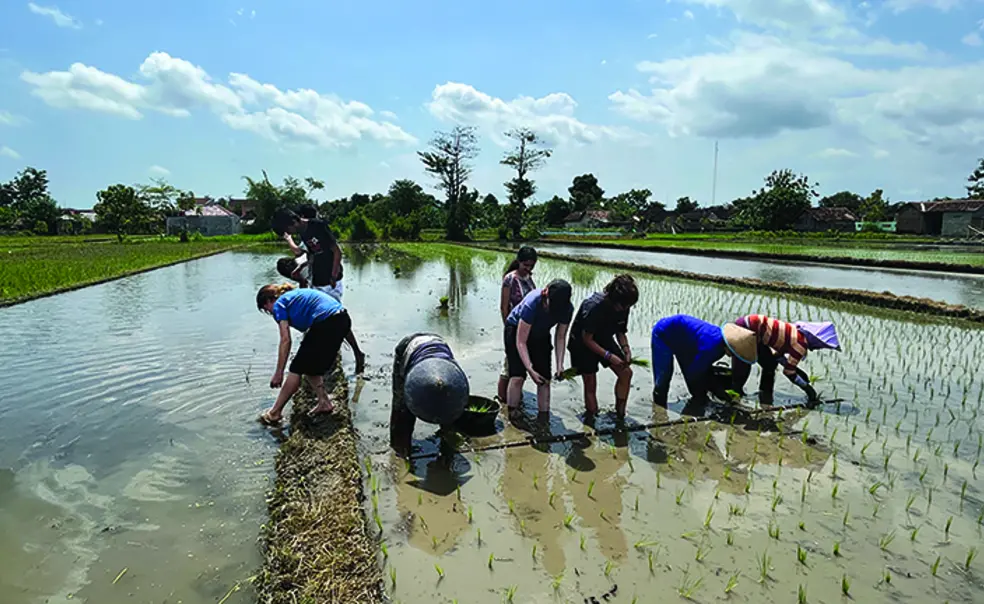Princeton Expands Bridge Year Program to Costa Rica and Cambodia
The University’s Novogratz Bridge Year Program, which provides undergraduates the opportunity to delay enrollment for a year and spend nine months abroad in a tuition-free volunteer placement, resumed this fall with expansions in Costa Rica and Cambodia. The new programs encourage students to study topics ranging from wildlife conservation to activism in sports.
Bridge Year will support 33 students in 2023-24, one more than the number of students last year, according to the program office. Six students each will join programs in Cambodia, Bolivia, and Senegal, with five students each in Costa Rica, Indonesia, and India.
Launched in 2009, Bridge Year has placed over 370 Princeton undergraduates in different countries. Locations have changed and expanded throughout the program’s history, according to Bridge Year administrators, and the pandemic stopped placements from 2020-22.
One of the biggest priorities for choosing program sites is the quality of local partners. “As we considered new potential partnerships, our expansion committee felt strongly that both Where There Be Dragons [in Cambodia] and Amigos de las Americas [in Costa Rica] could deliver deeply impactful opportunities for community-engaged learning for our students abroad,” John Luria, director of Bridge Year, wrote in an email. Both nonprofits work with students volunteering or taking gap years abroad.
Soree Kim ’28, an incoming student at Princeton and participant in the newest Cambodia program, said that she had never considered a gap year until Bridge Year announced an application deadline extension. Feeling burned out from the academic schedule of high school, Kim applied to Bridge Year at the last minute and told the interviewers that she wanted to be humbled by her experience abroad.
“I am slightly worried about accidentally eating the wrong thing and becoming very sick, but I do understand that that is part of the process,” Kim wrote in a message to PAW. “It is an honest fear of mine to make a mistake or say something culturally inappropriate and be seen as a dumb foreigner.”
Along with her peers, Kim is trying to define service. Despite good intentions, the effects of volunteering can look different on the ground.
“Although I don’t want to hold strong expectations of what I want to be by the end of the nine months, I hope that I at least grow into a wiser and kinder person,” Kim wrote. “I pray I can be someone who lived through experiences that broaden the way I think and see the world.”
Bridge Year can also influence the way students approach their Princeton years, according to Svetlana Johnson ’24, who was born in the West Indies but grew up in South Florida. She spent time in China and Taiwan during the pandemic-shortened 2019-20 Bridge Year.
The experience reminded her of “the ways that language can open up worlds for you,” she said. While she ultimately decided to major in economics, she tacked on a certificate program in Chinese language and culture.
“I wanted a major that would allow me to make an impact on the Caribbean, which is such a big region to me,” Johnson said. “Going to China reminded me to think even more international.”












No responses yet